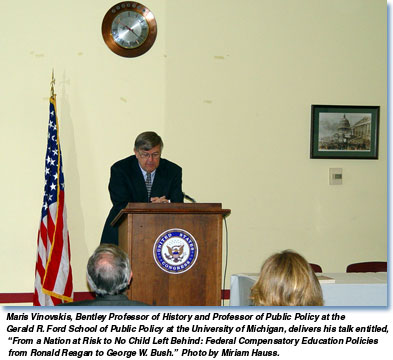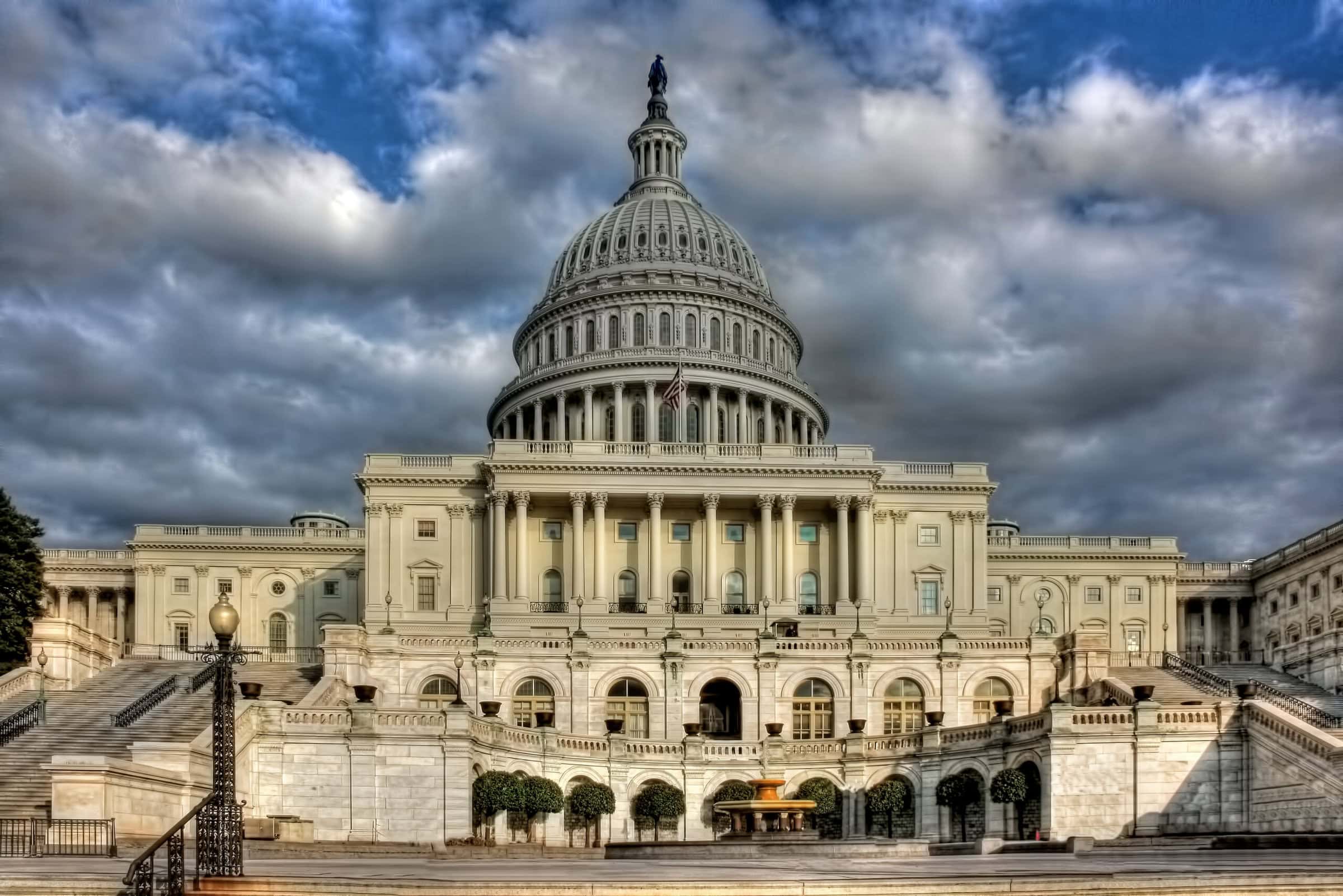 The National History Center’s Congressional Breakfast Seminar series was rounded off for 2005 at a well-attended meeting held on December 9, 2005, in the Gold Room of the Rayburn Building on Capitol Hill. Some 30 congressional aides, think-tank policy analysts, and others braved the snow and ice of that day to hear Maris Vinovskis, Bentley Professor of History and Professor of Public Policy at the Gerald R. Ford School of Public Policy at the University of Michigan, deliver a talk entitled, “From a Nation at Risk to No Child Left Behind: Federal Compensatory Education Policies from Ronald Reagan to George W. Bush.” The seminar was cosponsored by the House Humanities Caucus, a bipartisan group of more than 60 members of Congress.
The National History Center’s Congressional Breakfast Seminar series was rounded off for 2005 at a well-attended meeting held on December 9, 2005, in the Gold Room of the Rayburn Building on Capitol Hill. Some 30 congressional aides, think-tank policy analysts, and others braved the snow and ice of that day to hear Maris Vinovskis, Bentley Professor of History and Professor of Public Policy at the Gerald R. Ford School of Public Policy at the University of Michigan, deliver a talk entitled, “From a Nation at Risk to No Child Left Behind: Federal Compensatory Education Policies from Ronald Reagan to George W. Bush.” The seminar was cosponsored by the House Humanities Caucus, a bipartisan group of more than 60 members of Congress.
Vinovskis, who had served as deputy staff director to the U.S. House Select Committee on Population in 1978, and who worked in the U.S. Department of Education in the 1990s on questions of educational policy and research, in both Republican and Democratic administrations, traced the history of federal education policy over the past 25 years that gave rise to and culminated in President Bush’s “No Child Left Behind” (NCLB) initiative in January 2002. Vinovskis noted that NCLB is a continuation of decades of education reform efforts, including one initiated in the early years of the Reagan Administration when a special panel was appointed to assess the state of education in America. In 1983, that panel issued a report entitled, A Nation a Risk, which led to the “America 2000” initiative, the largest education reform effort in the history of the nation. Vinovskis noted that the report served as the catalyst for three major changes in education policy: a focus on student achievement rather than on resources provided for schools; a new expectation that all children can and should be able to reach high academic standards; and the belief at the national and state levels that there is a need to set ambitious goals and hold educators and policymakers accountable for reaching those objectives.
Toward the end of his informative and thought-provoking speech, Vinovskis made some general observations about efforts that have been made in the past and what future policymakers might do if they want their legislative initiatives to yield better results. He said that history shows that education policy makers generally “tend to set unrealistic expectations for achieving results and then become frustrated when we cannot reach them as promised.” Furthermore, programs like NCLB are appealing and can be useful “but they often suffer from inadequate implementation and coordination.” He also noted that “inadequate research and development is a major obstacle to providing effective federal assistance to states and local communities.”
An essay related to the presentation is available on the National History Center web pages.
The National History Center Congressional Seminar Series is primarily targeted to members of Congress, committee and member staff, think-tank analysts, and other policymakers. The aim of the series is to bring historians of note to Capitol Hill to seek to inject into policy discussions the contextual dimension that history can bring to discussions of federal foreign and domestic policy issues of concern.
The Congressional Seminar series will begin its second year in March 2006 with what promises to be a lively program featuring historians John Hope Franklin and Eric Foner who will discuss race and justice issues in America. Updated information about the seminars can be obtained (as it becomes available) from the Center’s web site.


